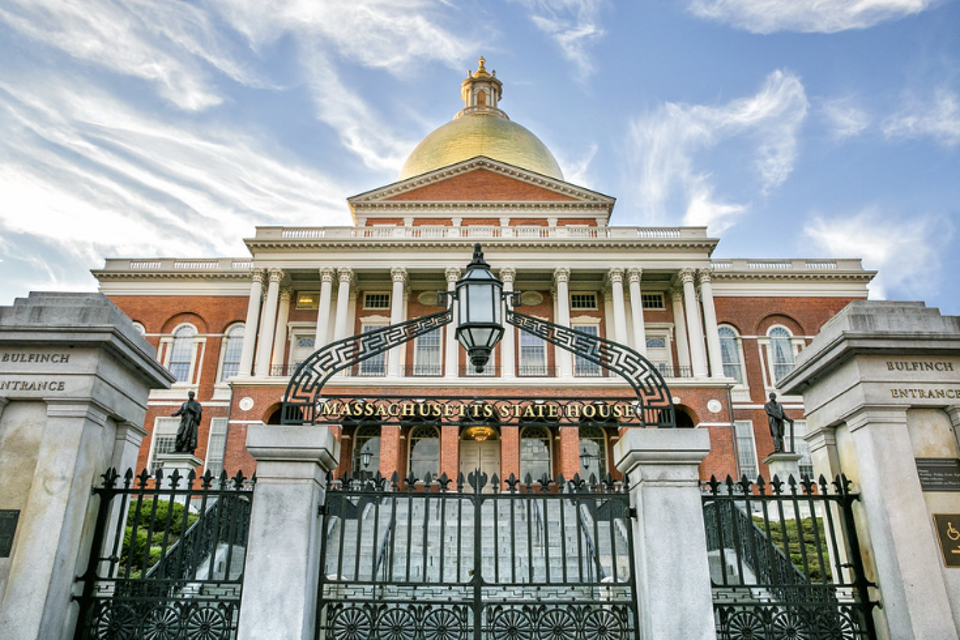The Boston ethos
November 17, 2020

Photo Credit: Kyle Klein via Flickr
by Larry Schwirian
Have you ever wondered why so much of what has been written concerning the early history of the United States is about events that occurred in or around Boston?
Why was Boston the epicenter of events that led to the American Revolution rather than New York or Philadelphia? Both were more populous than Boston and were also ports dependent on international trade. All three cities, as well as the rest of the British American Colonies, were impacted by the various acts passed by the British Parliament.
Why didn’t New York or Philadelphia have revolutionary leaders like Sam Adams, Paul Revere, and John Hancock? Why do we know so much more about the Boston Massacre than we do about a scuffle between patriots and Red Coats in New York in the same year? Why did the dumping of 46 tons of British tea into Boston harbor happen here and not New York or Philadelphia?
I don’t have all the answers to the above questions but I do have some subjective opinions on the subject. Boston was founded by Puritans, a group of religious zealots, who were very literate for their time and had very strong opinions about their God, morality, and education. These people were not meek, nor were they loath to act upon their beliefs. The ethos of 18th century Boston was very much in keeping with the culture established by the Puritan founders, even though religious beliefs had begun to evolve away from the concept of predestination and original sin.
New Amsterdam was founded in 1624, six years earlier than Boston, as a Dutch fur trading center and didn’t become New York until 1664. It has been, since its very beginning, a center of commerce and trade where wealth and power most often trump literacy and morality. It was a place where British Red Coats felt less threatened than in Boston and a place to which non-patriots flocked after hostilities began. As for Philadelphia, it was founded in 1682 by Quakers, a group known for its pacifist beliefs. It would not have been a place where you would ever expect rebellion to break out.
There were numerous events that happened in Boston, New York, Philadelphia, and Virginia between the Sugar Act in 1764 and the outbreak of hostilities in Lexington on April 19, 1775 but none as significant or as newsworthy as the Boston Tea Party or the Boston Massacre, where five patriots were killed and six others seriously injured. We know so much more about these events than others because there were no other events of comparable significance.
Boston clearly played a leading role during the Revolutionary War, but it was not the only period when Boston and Massachusetts were at the forefront of US history. In 1787, shortly after the war with England, resistance to government authority in the form of Shays’ Rebellion broke out in western Massachusetts. This was the first test of the viability of the newly-formed US Government and was a factor in leading the Founding Fathers to abandon the Articles of Confederation and adopt instead the US Constitution. Less than a generation later, during the War of 1812, at the Hartford Convention, Massachusetts and all of New England held the first serious discussion about the possibility of seceding from the American Union; it could have happened, but the war ended before any votes were cast.
In the 1830’s and 40’s Ralph Waldo Emerson and Henry David Thoreau started the Transcendental Movement which reflected 18th Century Enlightenment thinking and was also associated with both the Abolitionist Movement and the nascent beginning of the women’s suffrage movement in the US. In 1849, Thoreau, who was a critic of the Mexican/American War, published his book, Civil Disobedience, which later influenced both Martin Luther King and Mahatma Gandhi. During this same period, from 1830 to 1860, William Lloyd Garrison, editor of his newspaper, The Liberator, was one of the most prominent abolitionists and social reformers in the country. He was sometimes called “The Strongest Man in America” because of his fiery speeches. It was his speeches and his newspaper that perhaps caused Boston to be labeled the “hotbed of abolitionism.”
Even though Boston had evolved from its puritanical beginning, by the middle of the 19th century it was clear that John Winthrop’s 1630 sermon to his fellow Puritans, A Model of Christian Charity, with the famous phrase, “we shall be set as a city upon a hill,” had left a lasting legacy that still defined the essence of the ethos of Boston. Did you ever wonder why, in the 1972 presidential election, Massachusetts and the District of Columbia were the only entities that cast their electoral votes for George McGovern? Forty-nine other states cast their votes for Richard Nixon. Does it seem of consequence to you, that in the last fifteen presidential elections two Massachusetts governors and two of its senators were nominated by their respective parties to run for President of the United States? Does any other state in the Union have a comparable record?
Have you looked at your car license plate recently? What does it say at the bottom? If you live in Massachusetts it says,“The Spirit of America,” but what does that mean? To me it means that Boston, the capital of the Commonwealth of Massachusetts, is still “a city upon a hill,” and for the most part, true to the ethos and aspirations of its founders and their leader, John Winthrop.
Lawrence Schwirian has lived and worked in the Boston area for the past 50 years and has an avid interest in the history of places and how they developed. He served as Study Group Leader for the recent BOLLI course: Metro Boston: The People, Events and Technologies that Shaped the City in the First-Half of the 19th Century.